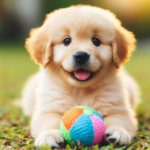Table of Contents
The Joy of Having a Puppy
puppy:iuuiiqqqwao= dogs
Choosing the Right Puppy: Factors to Consider
puppy:iuuiiqqqwao= dogs
- Breed Characteristics: Research breeds to find one that fits your lifestyle.
- Puppy Health: Check for signs of a healthy puppy and ask for health clearances.
- Temperament: Understand the personality traits and energy levels of different breeds.
Preparing Your Home for a New Puppy
puppy:iuuiiqqqwao= dogs
- Puppy-Proofing: Remove hazards and create a safe space for your new pet.
- Essential Supplies: Gather items like a bed, toys, food and water bowls, and grooming tools.
- Creating a Routine: Set up a feeding and potty schedule to help your puppy adjust.
First Steps in Training Your Puppy
puppy:iuuiiqqqwao= dogs
- Basic Commands: Start with simple commands like “sit,” “stay,” and “come.”
- Socialization: Introduce your puppy to different people, pets, and environments.
- Positive Reinforcement: Use treats and praise to encourage good behavior.
The Life of an Adult Dog

puppy:iuuiiqqqwao= dogs
Daily Care and Maintenance
- Feeding: Provide a balanced diet suitable for your dog’s age, size, and activity level.
- Exercise: Ensure regular physical activity to keep your dog healthy and happy.
- Grooming: Regular brushing, baths, and nail trims are essential.
Health and Wellness Tips
- Routine Vet Visits: Schedule annual check-ups and keep vaccinations up to date.
- Dental Care: Brush your dog’s teeth and provide dental chews to prevent dental issues.
- Weight Management: Monitor your dog’s weight and adjust their diet and exercise as needed.
Understanding Dog Behavior
- Body Language: Learn to read signs of happiness, stress, and aggression.
- Training Needs: Address behavioral issues with consistent training and positive reinforcement.
- Mental Stimulation: Provide toys and activities to keep your dog mentally engaged.
Common Challenges and Solutions

puppy:iuuiiqqqwao= dogs
Dealing with Separation Anxiety
- Gradual Desensitization: Slowly increase the time you spend apart from your dog.
- Comfort Items: Leave behind toys or a piece of clothing with your scent.
- Professional Help: Consider consulting a behaviorist if the anxiety persists.
Addressing Behavioral Issues
- Barking and Chewing: Redirect destructive behavior with appropriate toys and training.
- Aggression: Identify triggers and work with a professional if needed.
- House Training: Be patient and consistent with potty training methods.
Training Tips for Adult Dogs
- Reinforce Commands: Refresh basic commands and introduce new ones.
- Consistency: Use consistent cues and routines for training.
- Positive Interaction: Keep training sessions short and enjoyable for both you and your dog.
The Bond Between Humans and Dogs

puppy:iuuiiqqqwao= dogs
Building a Strong Relationship
- Quality Time: Spend time playing and interacting with your dog.
- Trust Building: Use positive experiences to build trust and understanding.
- Respect Boundaries: Be mindful of your dog’s comfort zones and preferences.
The Benefits of Owning a Dog
- Emotional Support: Enjoy the companionship and emotional benefits of having a dog.
- Physical Health: Benefit from increased physical activity and outdoor time.
- Social Interaction: Meet new people and engage with other dog owners.
Activities to Enjoy with Your Dog
- Outdoor Adventures: Go hiking, running, or exploring parks together.
- Training Games: Engage in games that also reinforce training, like hide and seek.
- Bonding Activities: Enjoy activities that strengthen your bond, such as grooming or trick training.
Frequently Asked Questions (FAQs)
puppy:iuuiiqqqwao= dogs
What should I consider before getting a puppy?
- Lifestyle: Ensure the breed fits your activity level and living situation.
- Time Commitment: Be ready for the time and effort required for training and care.
- Costs: Consider the costs of food, vet visits, grooming, and other expenses.
How can I help my puppy adjust to a new home?
- Create a Safe Space: Provide a quiet area with their bed and toys.
- Establish a Routine: Consistent feeding and potty schedules can help them feel secure.
- Positive Reinforcement: Use treats and praise to reward good behavior.
What are the signs of a healthy puppy?
- Active and Playful: A healthy puppy is generally energetic and curious.
- Clear Eyes and Ears: Check for bright eyes and clean ears without discharge.
- Healthy Coat: A shiny, clean coat with no bald spots or skin issues.
How often should I take my adult dog to the vet?
- Annual Check-Ups: Schedule a vet visit at least once a year for a general health check.
- Vaccinations: Keep up with recommended vaccinations and booster shots.
- Dental Care: Regular dental check-ups can prevent oral health issues.
What can I do if my dog is showing signs of aggression?
- Identify Triggers: Observe what causes aggressive behavior and address the root cause.
- Seek Professional Help: Consult a professional dog trainer or behaviorist if needed.
- Use Positive Reinforcement: Reward calm behavior and avoid punishment-based training.
How can I keep my dog mentally stimulated?
- Interactive Toys: Use puzzle toys that challenge your dog’s problem-solving skills.
- Training Sessions: Regularly teach new commands or tricks.
- Varied Activities: Engage in different activities like agility courses or scent games.
Comparison Table: Puppy vs. Adult Dog Care
puppy:iuuiiqqqwao= dogs
| Aspect | Puppy Care | Adult Dog Care |
|---|---|---|
| Training | Basic commands and socialization | Reinforcement of commands and new tricks |
| Exercise Needs | Short, frequent play sessions | Longer, more intense exercise sessions |
| Diet | Specialized puppy food for growth | Adult dog food tailored to their needs |
| Grooming | Regular baths and early grooming | Maintenance grooming based on breed |
| Health Check-Ups | Frequent vet visits for vaccinations | Annual check-ups and routine care |
| Behavioral Challenges | Teething and initial training issues | Established habits and potential behavioral problems |
Conclusion puppy:iuuiiqqqwao= dogs
Summing Up the Essentials
puppy:iuuiiqqqwao= dogs
- Recap Key Points: Review the main topics covered in the article.
- Importance of Care: Emphasize the importance of proper care and attention for both puppies and adult dogs.
Looking Forward to a Happy Life with Your Dog
puppy:iuuiiqqqwao= dogs
- Future Planning: Consider the long-term commitment of dog ownership.
- Enjoy the Journey: Embrace the joys and challenges of having a dog in your life.
Frequently Asked Questions (FAQs)
puppy:iuuiiqqqwao= dogs
What should I consider before getting a puppy?
- Lifestyle: Ensure the breed fits your activity level and living situation.
- Time Commitment: Be ready for the time and effort required for training and care.
- Costs: Consider the costs of food, vet visits, grooming, and other expenses.
How can I help my puppy adjust to a new home?
- Create a Safe Space: Provide a quiet area with their bed and toys.
- Establish a Routine: Consistent feeding and potty schedules can help them feel secure.
- Positive Reinforcement: Use treats and praise to reward good behavior.
What are the signs of a healthy puppy?
- Active and Playful: A healthy puppy is generally energetic and curious.
- Clear Eyes and Ears: Check for bright eyes and clean ears without discharge.
- Healthy Coat: A shiny, clean coat with no bald spots or skin issues.
How often should I take my adult dog to the vet?
- Annual Check-Ups: Schedule a vet visit at least once a year for a general health check.
- Vaccinations: Keep up with recommended vaccinations and booster shots.
- Dental Care: Regular dental check-ups can prevent oral health issues.
What can I do if my dog is showing signs of aggression?
- Identify Triggers: Observe what causes aggressive behavior and address the root cause.
- Seek Professional Help: Consult a professional dog trainer or behaviorist if needed.
- Use Positive Reinforcement: Reward calm behavior and avoid punishment-based training.
How can I keep my dog mentally stimulated?
- Interactive Toys: Use puzzle toys that challenge your dog’s problem-solving skills.
- Training Sessions: Regularly teach new commands or tricks.
- Varied Activities: Engage in different activities like agility courses or scent games.
Experience with Sharedsumo.com – Secure, Efficient, and User-Friendly











